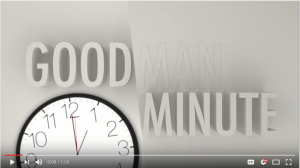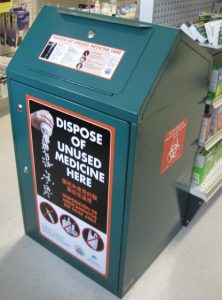Enhancing Public Safety: Improving Community Re-entry for Prisoners
In Washington, about 8,000 people who have served their time are released from prison every year. Fifty percent of those released, however, will return to prison at some point in their lives. People recently released from prison often face barriers to housing, employment and education, and many go back to prison because they don’t get the help they need to make the successful transition back into the community.
 In order to improve community re-entry, I’ve introduced three bills focused on effective measures for prisoner reintegration. House Bill 2025 sets requirements for Department of Corrections re-entry programs, House Bill 2638 expands eligibility for work release, and House Bill 1679 sets up a program to provide state-issued identification cards to recently released prisoners.
In order to improve community re-entry, I’ve introduced three bills focused on effective measures for prisoner reintegration. House Bill 2025 sets requirements for Department of Corrections re-entry programs, House Bill 2638 expands eligibility for work release, and House Bill 1679 sets up a program to provide state-issued identification cards to recently released prisoners.
Learn more about how improving our re-entry programs can help ensure those who have served their time are given a chance to succeed in life after release, while also enhancing public safety, in this week’s GoodMinute.
The next steps in a solution to the opioid epidemic
Washington is in the midst of an opioid crisis. Friends and neighbors across the state are falling victim, and overdoses have surpassed car crashes as the most common cause of accidental deaths. This epidemic is a public health crisis and solving it will require efforts across many fronts. This session, we are considering House Bill 2489 to address many aspects of the fighting this epidemic, such as medication-assisted treatment, access to emergency care, and strengthening prevention through the Prescription Monitoring Program (PMP).
 While the PMP helps regulate prescriptions, it does not address what happens to a drug once a prescription is filled. Last year, Washingtonians filled over 70 million prescriptions, and studies show that about one-third of those will be left unused. Often, those who abuse prescription drugs obtain them from family and friends, including from the unused and expired medication accumulating in the medicine cabinet.
While the PMP helps regulate prescriptions, it does not address what happens to a drug once a prescription is filled. Last year, Washingtonians filled over 70 million prescriptions, and studies show that about one-third of those will be left unused. Often, those who abuse prescription drugs obtain them from family and friends, including from the unused and expired medication accumulating in the medicine cabinet.
In order to protect against drug abuse, overdoses and preventable poisonings, Washington families need a safe, convenient, responsible way to dispose of unused medication. That’s why I support the Drug Take Back Act, which will require drug manufacturers to implement safe and secure, year-round disposal programs, including drop-off sites in communities across the state.
Policy committee ‘cutoff’ in Olympia
Each session, a legislative cutoff calendar is released providing cutoff dates that serve to funnel and narrow down the number of bills considered. In this short 60-day session, our offices are working hard to move bills though the legislative process before the various cutoff deadlines.
Last week was the first cutoff deadline – policy committee cutoff. Bills that did not pass out of the policy committees by the cutoff date are now dead for this session, except for bills directly related to the budget. As Chair of the House Public Safety Committee, I had to manage the approval process for the dozens of bills referred to my committee.
These cutoffs are essential for the effective operation of the legislature, but it makes for a fast-paced, sometimes tense period for legislators, lobbyists and the citizens we represent, who closely watch if their bills live or die.
If the bill passes the first cutoff date, then it continues in the process.
Many bills are introduced during the session, but remember not all bills will become law.
All best wishes,

Roger Goodman
Representative, 45th District
Washington State Legislature
